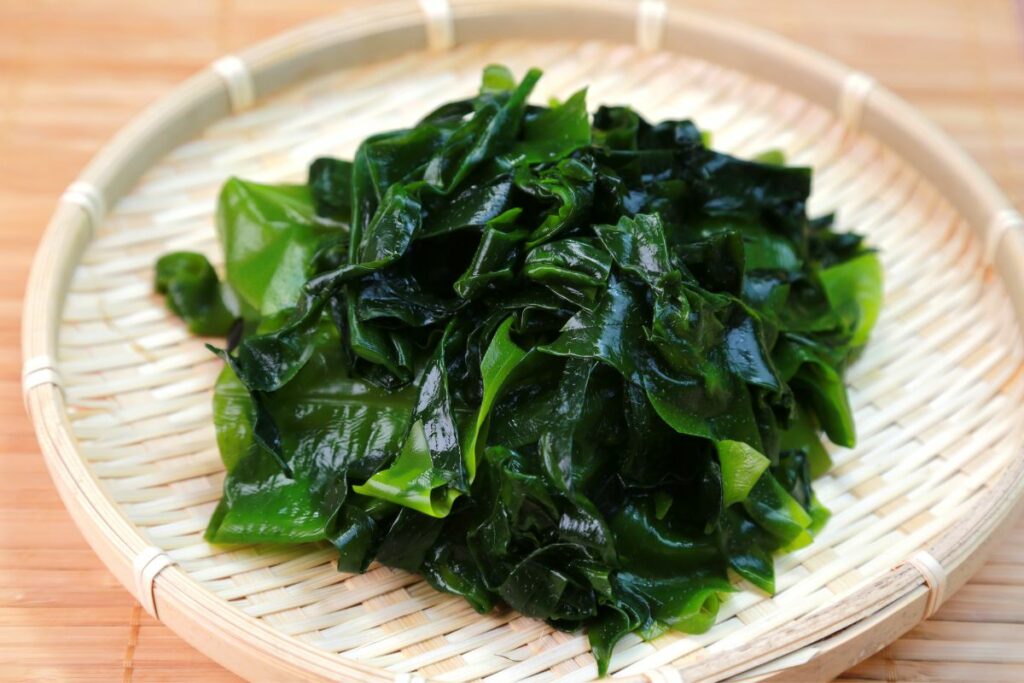How To Detox With Seaweed?
Seaweed has long been considered a superfood due to its numerous health benefits. In addition to being a good source of vitamins, minerals, and fiber, seaweed is also known for its detoxifying properties.
In recent years, seaweed has gained popularity as a natural way to cleanse the body and remove toxins.
In this article, we will explore the different types of seaweed that can be used for detoxification, as well as how to incorporate seaweed into your diet to help cleanse your body and boost your overall health.
Let’s get started!

Why Detox With Seaweed?
Let’s first look at why you might want to consider detoxing with seaweed in the first place.
Seaweed is a type of marine algae that is rich in a variety of nutrients and minerals, including iodine, magnesium, calcium, iron, and vitamins A, C, and K. These nutrients make seaweed a popular choice for detoxing the body.
Seaweed contains natural detoxifying properties that can help remove toxins from the body.
For example, seaweed contains compounds called alginates, which bind to heavy metals and other toxins in the digestive tract, preventing their absorption into the bloodstream.
Seaweed has also been shown to support liver function, which is a crucial component of the body’s natural detoxification process, seeing as the liver is responsible for breaking down toxins and removing them from the body.
Finally, seaweed can help promote healthy digestion- another important aspect of detoxification- as it is high in fiber, which can help to promote bowel regularity and eliminate waste from the body.
Related Article: Are Colon Cleanse Teas Safe For You To Drink – Really?
The Best Types Of Seaweed To Detox With
Several types of seaweed are commonly used for detoxification. Here are some of the best types of seaweed to detox with.
Kelp
Kelp seaweed is rich in iodine, a mineral that is essential for proper thyroid function. It also contains other minerals and vitamins, including calcium, magnesium, iron, and vitamin C.
These nutrients are important for overall health and can support the body’s natural detoxification processes.
Wakame
Wakame seaweed has also been suggested as a natural way to support detoxification due to its high nutrient content and potential ability to remove toxins from the body.
Like kelp seaweed, wakame is rich in minerals such as iodine, calcium, magnesium, and iron, as well as vitamins such as vitamin C and folate.
Wakame seaweed also contains a compound called fucoxanthin, which has been found to have antioxidant and anti-inflammatory properties.
Additionally, fucoxanthin may have the ability to stimulate the production of a protein called UCP1, which is involved in the body’s metabolism and energy expenditure.
Related Article: How Will A Cleanse Help with Constipation
Nori
Nori seaweed, which is commonly used in sushi rolls, is another type of seaweed that has been suggested as a natural way to support detoxification.
Like kelp and wakame seaweed, nori is rich in minerals and vitamins. It also contains compounds called phytochemicals, which have antioxidant and anti-inflammatory properties.
Some studies have suggested that these compounds may help protect against oxidative stress and support liver function, which is important for detoxification.
Atlantic Red Seaweed
Atlantic red seaweed is a type of seaweed that is commonly found along the Atlantic coastlines of North America and Europe.
It is a rich source of vitamins, minerals, and antioxidants, and has been used for centuries for its medicinal properties.
Some studies suggest that Atlantic red seaweed may have detoxifying properties. The seaweed contains a compound called carrageenan, which has been shown to have anti-inflammatory and antioxidant effects.
Carrageenan may also help to eliminate toxins from the body by binding to them and preventing them from being absorbed.
You can include Atlantic red seaweed into a detox diet in various ways, such as using it in soups, stews, salads, and even smoothies via dried or powdered variations.
It is important to note that while Atlantic red seaweed is generally safe to consume, it may interact with certain medications and can be high in iodine, which can be harmful in large amounts.
As with any dietary supplement, it is important to consult with a healthcare professional before adding Atlantic red seaweed to your diet, especially if you have any underlying health conditions or are taking medication.
Related Article: Lung Detox: Cleansing Your Lungs Naturally
How To Detox With Seaweed

As mentioned, seaweed has been suggested as a natural way to support detoxification due to its high nutrient content and potential ability to help remove toxins from the body.
However, it’s important to note that there is limited scientific evidence to support using seaweed specifically for detox purposes, and it should not be relied upon as a sole method of detoxification.
That being said, if you’re interested in incorporating seaweed into your diet as a way to support your body’s natural detoxification processes, here are some tips:
Choose High-Quality Seaweed
When purchasing seaweed, choose high-quality, organic seaweed to minimize exposure to potential contaminants.
Incorporate Seaweed Into Your Meals
Seaweed can be incorporated into a variety of dishes, such as sushi rolls, salads, soups, and stews. You can also snack on dried seaweed sheets, which can be found at most health food stores.
Stay Hydrated
Drinking plenty of water and staying hydrated is important for supporting the body’s natural detoxification processes, as it helps flush out toxins from the body Mycleanseplan.
Eat A Balanced Diet
Eating a balanced diet that includes a variety of nutrient-dense foods, such as fruits, vegetables, whole grains, and lean proteins, is important for overall health and can support the body’s natural detoxification processes.
Consult With A Healthcare Professional
If you have any concerns about using seaweed for detoxification purposes, or if you have any underlying health conditions, it’s important to speak with a healthcare professional before making any changes to your diet.
Related Article: Why Should You Do A Juice Cleanse – More Than Just Being An Easy Way To Cleanse
Incorporating Seaweed Into A Detox Diet
There is no one specific “seaweed detox diet,” but instead incorporating seaweed as part of a balanced and nutritious diet may support the body’s natural detoxification processes.
Here are some ideas on how to do so.
Start With Small Amounts
If you are new to eating seaweed, start with small amounts and gradually increase your intake over time. Too much seaweed at once can cause digestive discomfort.
Choose A Variety Of Seaweeds
There are many different types of seaweed, each with its own unique nutrient profile. Incorporating a variety of seaweeds, such as nori, wakame, and kelp can help ensure that you are getting a wide range of nutrients.
Include Other Detoxifying Foods
In addition to seaweed, including other detoxifying foods in your diet, such as leafy greens, cruciferous vegetables, berries, and herbs like cilantro and parsley, can help support the body’s natural detoxification processes.
Explore Also:
Creativehouseblog
Dietsheriff
Gigasecurehome
Final Thoughts
Seaweed is a nutrient-dense food that can be a valuable addition to a healthy and balanced diet.
While there is limited scientific evidence to support using seaweed specifically for detoxification purposes, incorporating seaweed into your meals can be a great benefit when it comes to your personal health.
Incorporating seaweed as part of a balanced and nutritious diet can support the body’s natural detoxification processes and promote overall health and well-being, so why not give it a try?






